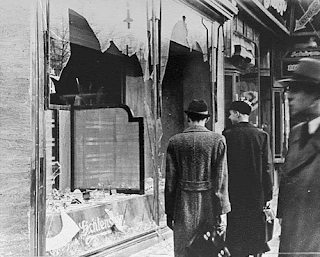
Kristallnacht, or "Night of Broken Glass", was a staged Nazi pogrom. They destroyed unthinkable numbers of synagogues, Jewish-owned stores and homes, community centers, cemeteries, hospitals, and schools as police stood by and watched. It was a turning point in history that happened on November 9-10, 1938, that would turn into the Holocaust.
.jpg)











